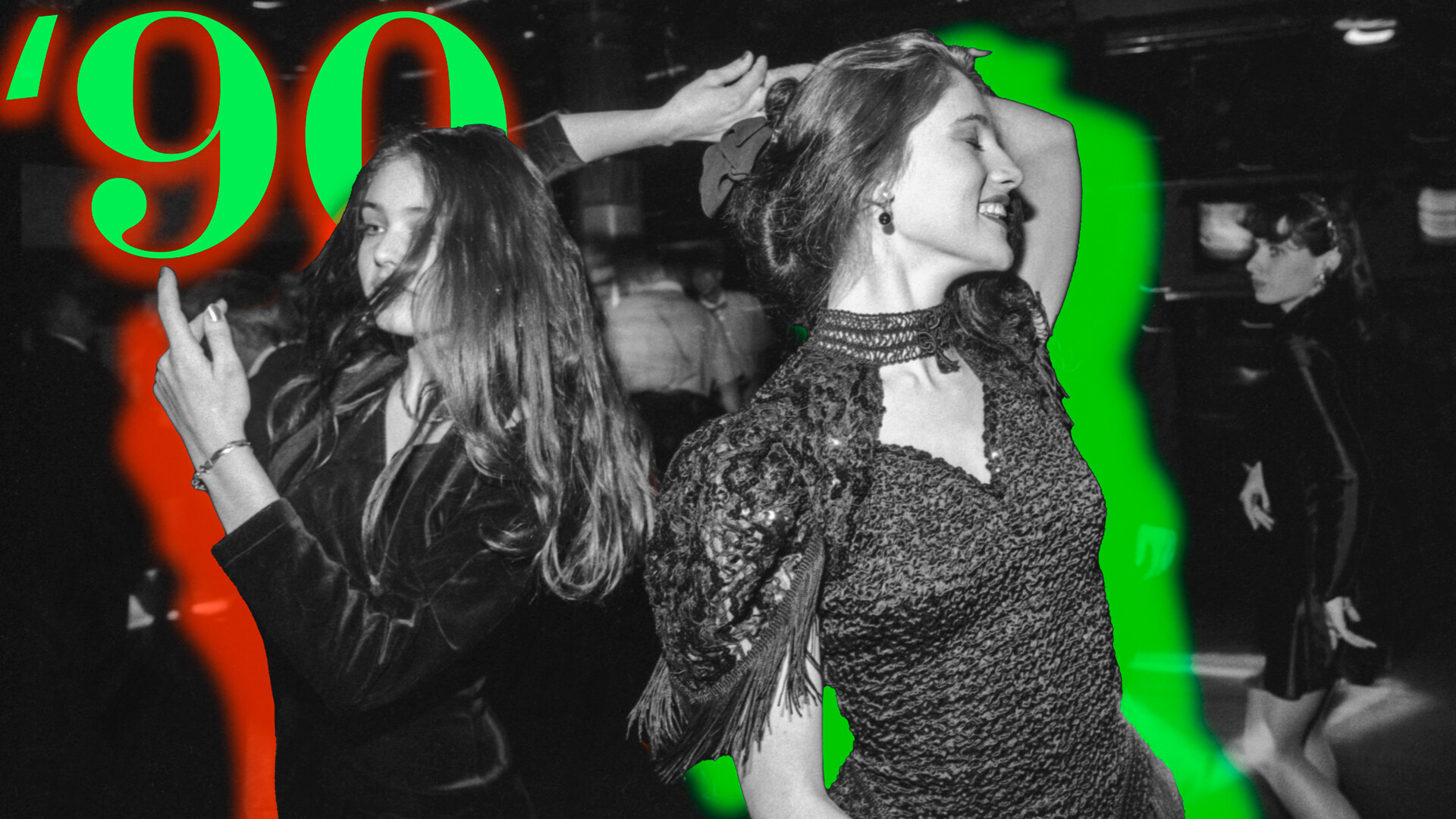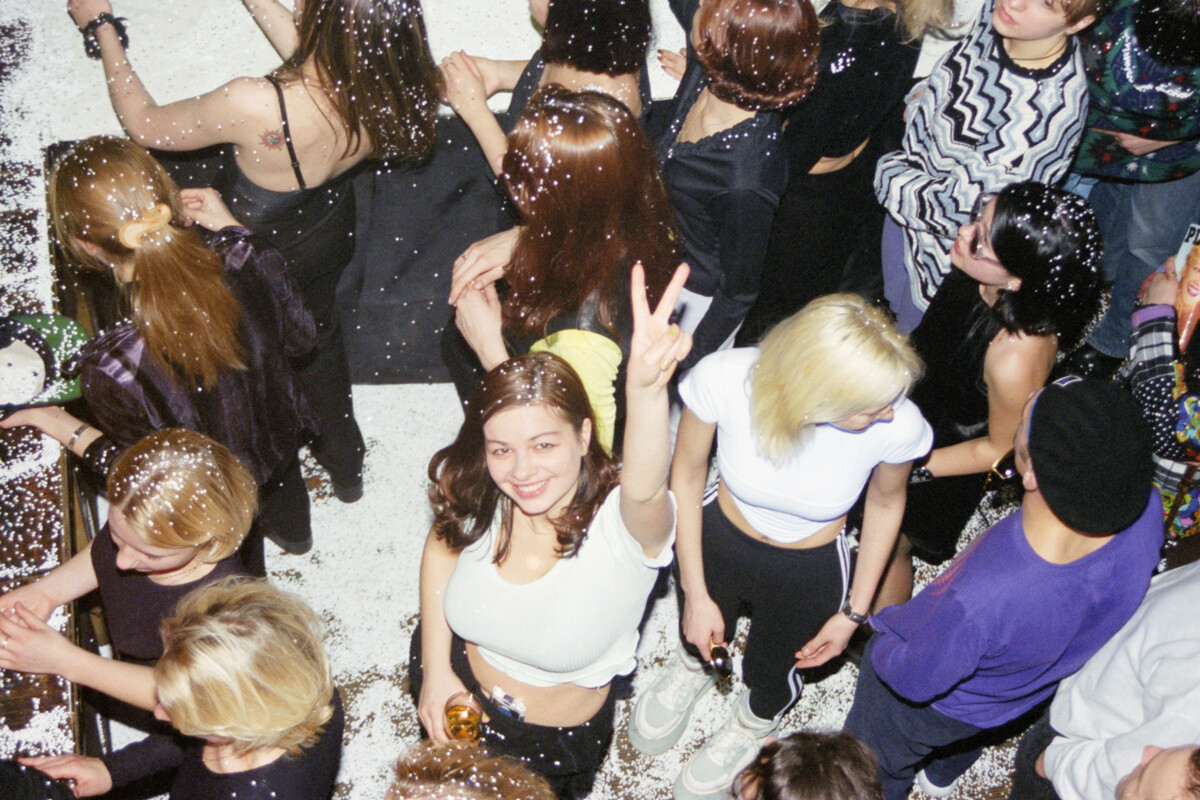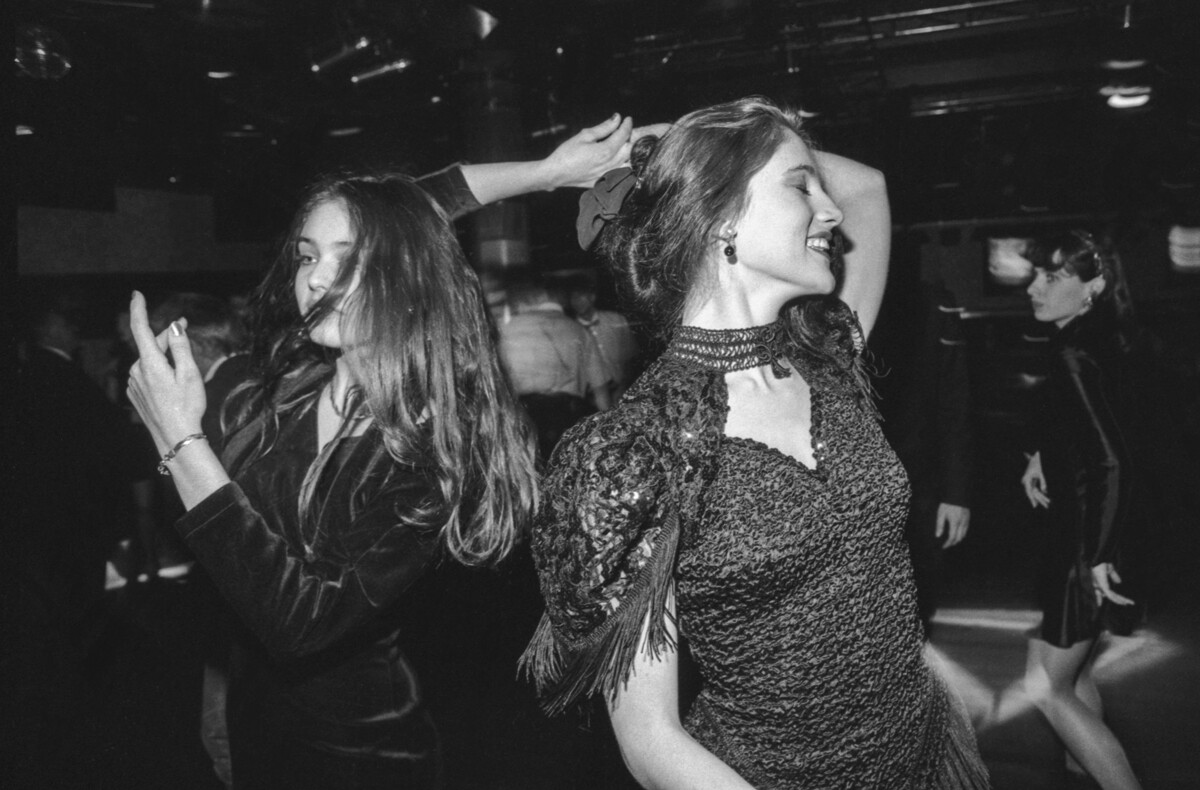
The USSR had no nightclubs in the modern term – there were just discos in Palaces of Culture. Only at the beginning of the 1990s did Moscow see the opening of nightclubs. Slowly, they appeared in different cities, as well, but Moscow remained the leader, since that’s where most of the money was. Although, the “pioneers” of this industry gained popularity as rapidly as they lost it after – the majority of the establishments closed down at the beginning of the 2000s, unable to withstand competition.
After the dissolution of the USSR, a large chunk of the population lost their usual sources of income. And, as the majority tried to survive and sought new ways of earning money, separate individuals discovered sources of quick enrichment. Some managed to seize former state property, some opened their own business, which began bringing serious profits. There were also some who became a part of the rapidly growing criminal world.
Having dipped into “easy” money, people sought ways to spend it in a fun way. The budding club industry helped them with that. Some “criminal authorities” went on to become sponsors for such establishments, but others just had fun burning money.
According to the organizers, about $1.5 million was spent on designing one of the most successful Moscow clubs from the 1990s called ‘Titanic’. The best sound equipment was brought over from England; techno music was playing instead of pop music and laser rays were used in the club’s lighting design. Having gained popularity thanks to an original concept, thematic parties and newfangled music, ‘Titanic’ started getting very expensive advertising contracts from global brands. However, in 2000, unable to withstand the competition, the club gave way to new hip establishments.
Nightclubs, naturally, didn’t just attract gangsters – you could meet anyone on the dance floor. “There wasn’t such a distinct social stratification yet. In the club itself, one could meet Tanya Dyachenko [the daughter of President Boris Yeltsin], her son and, for example, Umar Dzhabrailov [a Russian entrepreneur]. The club had two VIP-rooms, about 40 meters big, so I could have ended up right next to them. And their security wasn’t allowed in!” one of the former patrons of the establishment remembers.
It was hard to get into a nightclub for teenagers, as they often couldn’t get past face control security. Artist Svetlana Vikkers, co-owner of the ‘Hermitage’ club, remembered in one of her interviews, “Every club had its own clientele, but Hermitage was visited by everybody: gangsters, businessmen, the so-called intelligentsia and teenagers. The latter had a hard time getting into the club, but once, they found a hole in the roof, right over the toilet room. What did you think they did? They squeezed through this hole and fell right on the heads of those waiting in line for the toilets.”

January 14th, 1997, 'Titanic'.
Alexander Uchkin/TASSFirearms, which were always carried around by a certain public, were left at the club’s entrance, but that rule was not followed by everybody. The club owners’ acquaintances could have entered with weapons and it was much easier to spark a conflict than to avoid it. “You nudge someone by the shoulder, step on someone’s foot, forget to apologize – and a knife fight or a gunfight breaks out. You could have gotten the heat for simply looking at someone funny, for not apologizing properly – literally for anything. And when the shootings began, the club’s “security” was simply dropping on the floor,” one of the patrons of such establishments also remembers.
The participants of these skirmishes were very rarely held responsible for what happened, as well as drug dealers and their clients. “Drugs circulated in clubs absolutely freely; if a dealer was caught, he could always simply pay a bribe,” the patron adds.
Clubs also became the place for certain types of acquaintance. “There was this casino restaurant called ‘Metelitsa’. Girls of a certain profession sat at the bar counter and negotiated with their clients right away,” a former patron of such places points out.
In 1993, same-sex relationships were decriminalized in Russia and openly gay clubs began appearing in Moscow. Among them were: ‘Chance’, which, at one time, made it onto the list of the top 10 gay clubs of the world, ‘Three monkeys’ and ‘Central station’. Security in them was more strict than in other establishments, in order not to allow homophobes in. But, in order not to go broke, the owners had to let in not just people they knew. For example, one could have ended up in a gay club by mistake, as our interlocutor recalls: “I was already quite loaded with booze and we went to some club with my female friend, around Taganka, but she didn’t tell me what club it was, but I already didn’t care. When we arrived there, somehow I made it to the toilet; I was washing my hands and there was a man standing next to me, applying lipstick. I was shocked; confused, I was staring at him. He noticed my stare, but didn’t understand why I was looking at him that way. But, then it ‘dawned’ on him: he offered me his lipstick and asked me: ‘Want some?’”
At the end of the 1990s, everything changed: instead of people with weapons and money came people without weapons, but still with money. That’s when the ‘Zeppelin’, ‘XIII’, ‘Jazz-cafe’ and ‘Gallery’ clubs opened. “In ‘Gallery’, they outright mocked people, kept them in line on purpose. The social stratification was quite visible then already, with pretentious places popping up. Some of them gained popularity due to their exclusivity. I had an acquaintance, at that time he was already rolling around in a turbo-charged Porsche, regularly visiting Switzerland, and still he wasn’t allowed into that club. His wife went to this club during the day to look for a manager and persuade him to allow her husband in at night. The ‘Garage’ club was the same – there was this luxury couple, they stepped out of a Mercedes with their security, but the face control guys told them: ‘Do you have our club card?’,” one of the visitors of the establishments recalls.

Beauty contest participants in 'Cherry' casino.
Vakery Hristoforov/TASSPickiness in choosing clients led to bankruptcy – such pretentious clubs began closing down at the beginning of the 2000s already. Our interlocutor remembers that the clientele ebbed to new fashionable places and the fates of former club ravers went in different directions: “In, I believe, 2003, ‘Zeppelin’ was gone, ‘Gallery’ – gone, ‘Garage’ – gone. A cafe opened up on Tverskaya Street and my old acquaintances invited me there. I met a girl there I knew for a long time from nightclub life; at one point, I gave her 300 dollars and dissuaded her from using vulgar fake nails. But, by that time, she was married to some oligarch and spent most of her time in London. Quite the transformation.”
Today, the nightclub industry is flourishing in Russia: in most of the cities, let alone Moscow, one can find different spots for all tastes and budgets. But, despite their wide variety, they are not really similar to the clubs from the 1990s – nightlife has, instead, become much more safe and civilized.
Dear readers,
Our website and social media accounts are under threat of being restricted or banned, due to the current circumstances. So, to keep up with our latest content, simply do the following:
If using any of Russia Beyond's content, partly or in full, always provide an active hyperlink to the original material.
Subscribe
to our newsletter!
Get the week's best stories straight to your inbox